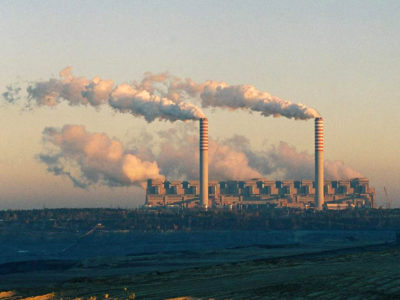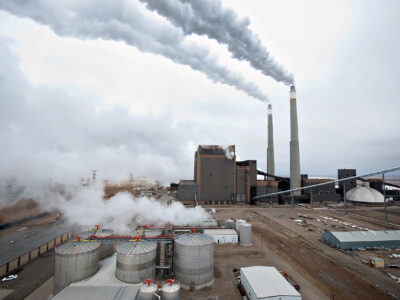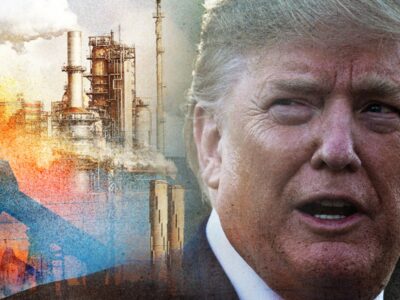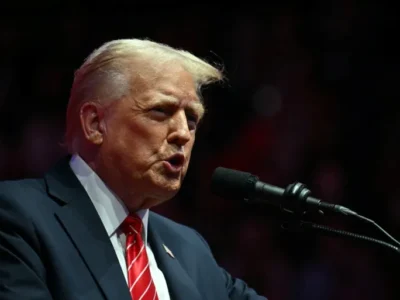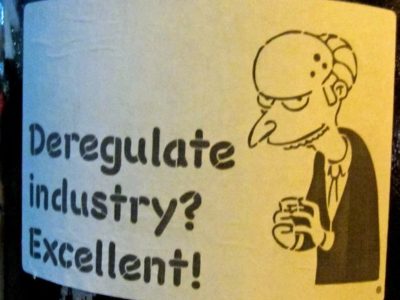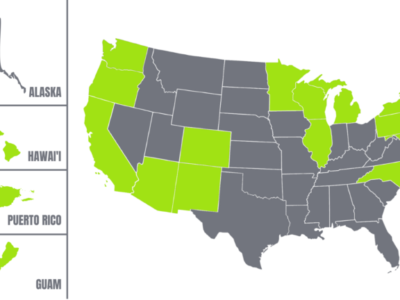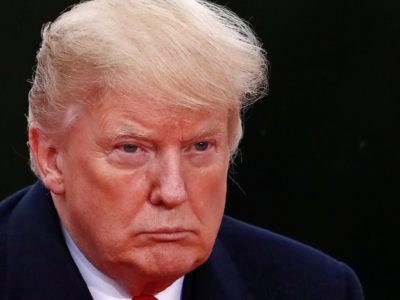regulatory rollbacks
The Woeful Economics of a Misguided Rollback
The costs of Trump’s rollback of key climate rules far outweigh any benefits.
Trump’s rollback of regulations limiting emissions from power plants is an economic disaster. According to economists, health damages far exceed savings from lower compliance costs. Just considering health impacts alone, the net cost of the rollback will be $129 billion through 2050. Climate damages add another $148 billion in costs.
CONTINUE READINGThe Emperor’s New Endangerment Theory (Part I)
EPA says the electricity sector’s climate impacts aren’t significant. Really??
EPA has proposed a novel reading of the Clean Air Act (CAA) that would foreclose any regulation of CO2 emissions from power plants. EPA’s core argument is that the statute requires it to determine whether an industry’s emissions “cause or contribute significantly” to climate change and that the industry’s carbon emissions don’t meet that standard. …
Continue reading “The Emperor’s New Endangerment Theory (Part I)”
CONTINUE READINGEnvironmental Rollbacks: Will the Trump Administration Overplay Its Hand?
The odds are good that Trump agencies will go too far out on a limb.
The Trump Administration’s tendency to rely on bold legal arguments rather than detailed technical ones is a disadvantage in court. Courts defer to agencies on factual matters, especially those that involve technical expertise. Now that Chevron has been overruled, however, legal arguments by agencies don’t get the same deference. Thus, the chances of a judicial reversal are higher when the agency relies on purely legal grounds.
CONTINUE READINGNo, DOE, You Can’t Roll Back Product Efficiency Standards
Congress wanted greater energy efficiency over time and banned rollbacks.
The Department of Energy is proposing to rescind key energy efficiency requirements. It is beyond ironic that it is attempting to do so at a time when the President has proclaimed an energy emergency. Trump says the grid is struggling desperately to meet surging power demand. That’s a strange time to eliminate regulations that are saving energy. DOE’s action is also illegal, because the law in question has a provision prohibiting rollbacks. Congress wanted efficiency standards to get tougher over time and included an anti-rollback provision to make sure of that.
CONTINUE READINGDoes Deregulation Hypercharge the Economy?
If the economics effects are that huge, you’d expect the unemployment rate reflect major regulatory or deregulatory moves. It doesn’t.
EPA’s head sats that “EPA will be reconsidering many suffocating rules that restrict nearly every sector of our economy and cost Americans trillions of dollars.” If regulation and deregulation are that big a deal economically, we should clearly see their imprint on unemployment. It turns out that even the biggest regulatory and most dramatic deregulatory actions have no discernible effect on the job market.
CONTINUE READING100 Days of Anti-Environmental Mayhem
A flood of anti-environmental initiatives threatens to undo decades of progress.
the Administration has withheld funding for clean technology, denounced the very idea of environmental justice, and begun a campaign to gut environmental agencies. And that’s only the first hundred days of Trump’s second term.How far Trump gets with this anti-environmental jihad will depend partly on the courts but mostly on politics. Events relating to the economy and provision of basic government services are likely to have as much impact on how things play out than anything specific to the environment.
CONTINUE READINGRegulatory Rollbacks: What to Expect
A replay of 2017? Or maybe something more radical? You can probably guess the answer.
Repealing and replacing existing environmental regulations will have a lower priority in this iteration of the Trump presidency – it will often be easier to just ignore the existing regulations or eliminate the regulators rather than the regulations. When it does rollback regulations, the administration will probably take more extreme legal positions and will be more likely to make constitutional arguments against environmental regulation.
CONTINUE READINGLegal Safeguards Against Deregulation
Congress was aware that there could be a backlash against environmental standards. It took precautions.
If it could, no doubt the current Administration would be happy to have the same polluted air and water–and energy-wasting appliances)– that we had fifty years ago. Thanks to the anti-backsliding aspects of environmental law, however, they can’t really achieve that. The best they can generally do is to get rid of recent regulations that haven’t gone into effect yet.
CONTINUE READINGThe Green-State Playbook
Here are five ways states can save climate policy despite Trump.
Trump’s election is a body blow to U.S. climate policy, but there are ways that those states can fight Trump and move forward on their own plans. To cut to the chase, here are five key strategies for green states — starting with lawsuits against the Trump Administration, which were highly successful in Trump’s first term.
CONTINUE READINGWhat to Expect When You’re Expecting Trump: Looking Ahead to 2025
Before even taking office, Trump has confirmed that “normality” is out the window.
Trump’s strategy involves appointing inexperienced administrators and to alienate or eliminate the experienced public servants who could help them implement their policies effectively.The good news is that Trump has not learned the lessons of his first administration and continues to think that ideology and bravado can substitute for competence. The courts are likely to tell him otherwise.
CONTINUE READING



